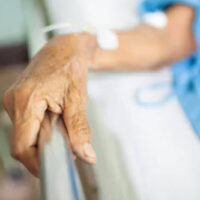Recognizing the Signs of Nursing Home Abuse

No one likes to think that their loved one is being abused in a nursing home, but the reality is that this type of conduct occurs at an alarming rate. In fact, the World Health Organization reported that in 2017, 15.7 percent of individuals over the age of 60 years old were subjected to some form of abuse. Many researchers claim that these numbers may be underestimating the scope of the problem, as it is believed that only one out of every 24 cases of elder abuse is actually reported.
A large proportion of elder abuse cases don’t occur in the home, but are perpetrated by employees and volunteers at nursing homes and assisted living facilities. Fortunately, it is possible to hold these facilities accountable for their failure to provide reasonable care to residents, so if your loved one was abused while residing in a nursing home, you should speak with an experienced Tulsa nursing home abuse lawyer who can help you seek compensation on their behalf.
Physical Signs
Nursing home abuse is not always physical, but there is often some physical evidence of abuse or neglect, including:
- Weight loss;
- Bedsores;
- Poor hygiene;
- Unexplained dislocations, sprains, and broken bones;
- Bruising, welts, or scarring;
- Signs of forced restraint, like rope marks on wrists and ankles; and
- Missing or broken eyeglasses, hearing aids, or dentures.
These signs, while they are often proof of actual physical abuse, could also be evidence of neglect, staffing problems, or a lack of training. Weight loss and mood changes, for example, could be evidence of emotional or verbal abuse.
Psychological Signs
Besides physical signs of abuse, those with loved ones in nursing homes should keep an eye out for changes in a relative’s mental state or behavior. For instance, many victims of nursing home abuse become depressed, confused, or withdrawn, while others may become easily agitated, argumentative, or even violent, all of which could be evidence that a resident is suffering some form of abuse, whether physical, verbal, or financial.
Financial Signs
Individuals with relatives who reside in nursing homes or similar facilities should also remain vigilant for signs that a resident is being financially exploited. This type of abuse can take a number of forms, including everything from unexplained withdrawals from a bank account to unusual credit card charges. In these cases, it is also not uncommon to find evidence of forged documents or coerced signatures to titles and deeds, life insurance policies, and Power of Attorney designations. A resident may even be forced into changing his or her will to include the abuser as a beneficiary. Finally, relatives should remain wary of evidence that a resident is being deprived of his or her personal belongings or valuable possessions.
Contact Our Tulsa Nursing Home Abuse Legal Team
Recognizing the signs of abuse is only the first step in helping a loved one who is residing in a nursing home hold an abuser accountable. For help pursuing your case and seeking compensation for your relative’s medical bills and pain and suffering, please call 918-492-4433 to speak with one of the experienced Tulsa nursing home abuse lawyers at Levinson Law, P.C. today.
Resources:
health.usnews.com/health-news/best-nursing-homes/articles/2013/02/26/9-warning-signs-of-bad-care
who.int/news-room/fact-sheets/detail/elder-abuse

